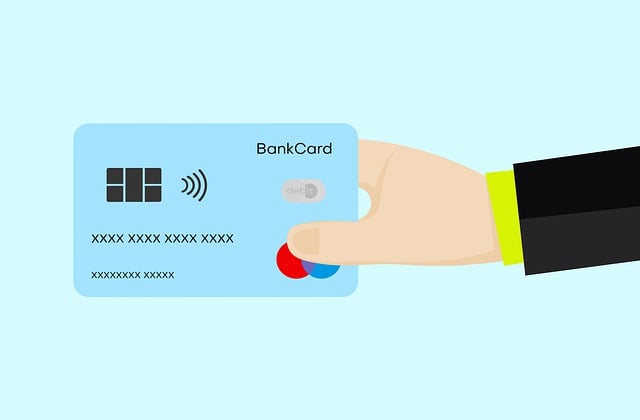Small businesses can access equipment loans from various sources, including leading banks, credit unions, and online lenders. When securing a loan, entrepreneurs should compare lender offerings based on interest rates, repayment terms, and application processes using online resources to ensure favorable conditions for equipment acquisition. This strategic financing establishes a solid financial foundation for long-term success by enabling businesses to grow through necessary machinery or vehicle purchases.
Small businesses in need of specialized equipment often turn to loans. Understanding the options is key. This article guides you through the landscape of equipment financing, focusing on leading banks and credit unions known for their small business support. We also explore the rise of online lenders, highlighting both advantages and drawbacks. Learn how to compare loan rates and terms wisely. Ultimately, we’ll help you choose the right financial institution aligned with your unique needs.
- Understanding Small Business Equipment Loans
- Leading Banks and Credit Unions for Equipment Financing
- Online Lenders: Pros and Cons for Small Businesses
- How to Compare Loan Rates and Terms
- Selecting the Right Financial Institution for Your Needs
Understanding Small Business Equipment Loans

Small businesses often require specialized equipment to get their operations off the ground or expand their capabilities. This is where equipment loans come in—a crucial financial tool that allows entrepreneurs to access the necessary capital for purchasing machinery, vehicles, or other assets. Understanding this financing option is essential for any small business owner considering their growth strategies.
When it comes to securing an equipment loan, there are various institutions to choose from, including leading banks, credit unions, and online lenders. Each offers unique loan products with varying interest rates and terms. To make an informed decision, business owners should compare lender offerings based on their financial needs. Online resources provide extensive data on different lenders, enabling entrepreneurs to find the best deal in terms of loan rates and repayment conditions. This process ensures small businesses receive the most favorable terms for their equipment acquisition, fostering a solid financial foundation for their ventures.
Leading Banks and Credit Unions for Equipment Financing

Small businesses looking to invest in equipment have several financing options, including leading banks and credit unions that offer specialized equipment financing. These financial institutions often provide competitive loan rates and flexible terms tailored for small business owners. When comparing lenders, it’s important to consider factors like interest rates, repayment terms, and the overall application process. Many reputable banks and credit unions have online platforms making it convenient to apply for equipment loans.
While online lenders are also gaining popularity for their speed and accessibility, traditional financial institutions like leading banks and credit unions may offer better security and personalized customer service. When evaluating different lenders, consider the reputation of the institution, the types of equipment they finance, and any additional services or support they provide. This approach can help small businesses make an informed decision to secure the best financing options for their growth needs.
Online Lenders: Pros and Cons for Small Businesses

Many small businesses turn to online lenders for equipment financing due to their accessibility and faster approval processes compared to traditional methods. Online lenders, often digital platforms or fintech companies, offer a convenient way for entrepreneurs to secure loans without stepping into a physical bank branch. This option is particularly appealing for businesses that need quick funding for essential machinery or technology upgrades. Pros include competitive loan rates, streamlined applications, and the ability to manage the entire process online, saving time and effort.
However, there are potential drawbacks. Online lenders might not always offer the same level of personalized service as leading banks or credit unions, and their loan terms and conditions could be less flexible. While these platforms make comparisons between lender offerings easier, they may lack the in-depth knowledge and expertise that financial institutions with a long history provide. Small businesses should carefully review online lenders’ fees, repayment structures, and any hidden costs to ensure the best fit for their short and long-term financial goals.
How to Compare Loan Rates and Terms

When evaluating equipment loan providers for your small business, comparing loan rates and terms is a crucial step to ensure you’re getting the best deal. Start by gathering information from various sources including leading banks, credit unions, and online lenders. Each financial institution may offer different interest rates, repayment periods, and additional fees, so it’s essential to do thorough lender comparisons.
Consider not only the apparent loan rate but also hidden costs such as processing fees or prepayment penalties. Additionally, look at the terms of the loan, including the length of the repayment period and whether there are any collateral requirements. Online lenders often provide transparency in their terms and conditions, making it easier to compare offers. Remember, choosing the right lender can significantly impact your business’s financial health, so take the time to understand the details before making a decision.
Selecting the Right Financial Institution for Your Needs

When searching for the best equipment loan provider for your small business, selecting the right financial institution is crucial. Start by evaluating the types of lenders available, including leading banks, credit unions, and online lenders. Each offers unique benefits, such as traditional banking services from established institutions or the agility and accessibility of digital-first lenders. Consider factors like loan rates, terms, and conditions to ensure the provider aligns with your business’s needs.
Performing lender comparisons is essential for securing the most favorable terms. Explore their offerings, reputation, and customer reviews to gauge their reliability. Online platforms can facilitate this process by providing side-by-side comparisons of different lenders’ products, allowing you to make an informed decision based on factors like interest rates, origination fees, and repayment options. Remember that the right lender should offer competitive loan rates and transparent terms, ultimately contributing to your business’s growth and success.






